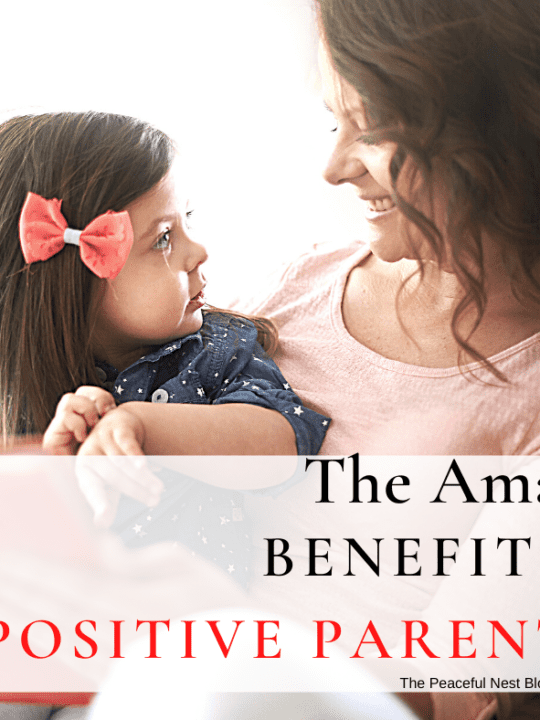
Positive parenting is a style of parenting that focuses on the positive aspects of a child’s behavior rather than the negative.
This type of parenting has been shown to have various benefits for children, including increased self-esteem and better problem-solving skills. This blog post will discuss the benefits of positive parenting and provide some tips for implementing it in your own home!
Negative parenting involves constantly criticizing a child’s behavior and pointing out their mistakes. This type of parenting can lead to children feeling discouraged and lacking self-confidence. In contrast, positive parenting involves praising a child’s good behavior and providing encouragement when they make progress. This approach can help children feel motivated and build self-esteem. When it comes to raising happy, healthy children, positive parenting is the way!
Here are ten tips for implementing positive parenting in your own home:
Positivity tip #1 Be sincere in your praise.
When you praise your child, make sure that it is genuine and specific. For example, instead of simply saying “good job,” try, “I’m so proud of how you persevered through that difficult task!”
Positivity tip #2 Encourage effort, not just results.
It’s important to praise your child for their actions, even if they don’t consistently achieve the desired result. For example, you might say, “I can tell you worked hard on that painting,” or “You did a great job trying out for the soccer team.” This will help your child feel good about their efforts even when they don’t reach their goal.
Positivity tip #3 Focus on the present.
When you praise your child, try to focus on their current behavior or accomplishments. This will help them feel appreciated at the moment and motivated to keep up the excellent work.
Positivity tip #4 Make it a habit.
Try to make positivity a part of your everyday parenting routine. The more you praise your child, the more likely they will internalize a positive self-image.
Positivity tip #5 Be consistent.
If you only encourage your child occasionally, they may start to doubt your sincerity. So it’s essential to be compatible with your encouragement to reinforce its message.
Positivity tip #6 Avoid comparisons.
When you encourage your child, avoid comparing them to other children or their previous accomplishments. This can make them feel like they’re never good enough and could lead to resentment or that they need to “beat” someone to be worthy.
Positivity tip #7 Choose your words carefully.
When praising your child, the words you use can significantly impact how they feel about themselves. For example, avoid using phrases like “Good job for a girl” or “You’re not as messy as your brother.” Instead, focus on the positive qualities of their behavior or character while leaving other kids out of it.
Positivity tip #8 Be specific.
Vague praise is less effective than direct praise. For example, instead of saying “Great job!” try “I love the way you used color in that picture!” or “I’m so proud of the way you handled yourself in that situation.”
Positivity tip #9 Timing is everything.
Try to encourage your child as soon as possible after the desired behavior occurs. This will help them connect their good behavior and your positive reaction.
Positivity tip #10 Don’t overdo it.
While it’s important to praise your child regularly, you don’t want to go overboard. Too much praise can make a child feel insecure or even arrogant. A good rule of thumb is to aim for a ratio of five positive comments for every negative one. This will help ensure that your child feels loved and supported without becoming overly confident.
One of the main effects of negative parenting is that it can lead to children feeling discouraged and lacking self-confidence.
When children are constantly criticized or made to feel like they’re never good enough, they may start to doubt their abilities and lose motivation. This can have a lasting impact on their self-esteem and make them less likely to take risks or try new things. In contrast, positive parenting can help children feel appreciated and supported, leading to higher self-confidence and motivation. So if you want your child to be happy and thriving, focus on praising their good behavior and providing encouragement when facing challenges. It’s the key to positive parenting!
Positivity has been shown to have several benefits for children. Some of the top benefits of positive parenting include:
-Higher self-esteem and confidence levels
-Greater motivation and willingness to take risks
-Improved performance in school
-Better social skills and relationships
– increased happiness and satisfaction with life in general.
Children who feel appreciated and supported tend to have higher self-esteem and confidence levels.
They know that their parents believe in them and are proud of their accomplishments. As a result, they’re more likely to take risks and try new things.
Positive parenting can also lead to improved performance in school. This is because children who feel good about themselves are more likely to pay attention in class, participate in activities, and complete their homework.
Furthermore, positive parenting can help children develop better social skills. When children feel loved and supported at home, they’re more likely to be kind and cooperative with others.
Finally, positive parenting has been shown to increase happiness and satisfaction with life in general. Happy children tend to have a more optimistic outlook and are less likely to experience anxiety or depression.
If you want your child to be happy and successful, focus on praising their good behavior and providing encouragement when they face challenges. It’s the key to positive parenting!
Positive parenting is beneficial not only for children but also for parents.
When parents focus on the positive aspects of their child’s behavior, they’re more likely to have a strong relationship with their child built on trust and mutual respect. In addition, positivity has been shown to increase happiness and satisfaction with life in general. So if you want your child to be happy and flourishing, make sure to focus on the positive!
If you want to learn more about peaceful parenting, check out 12 Habits of Immensely Peaceful Moms.
Facebook: @thepeacefulnestorg
Instagram @thepeacefulnestblog

Hi there, I’m Jenna! I am a devoted mommy and wife. As well as an advocate for children and creating a peaceful atmosphere for those we love. I co-wrote Faith Actually: Living Life After Tragedy with my husband. I have my Bachelor’s Degree in Biblical Studies and currently working toward my Master’s in Positive Psychology. My number one desire is to create a peaceful home life for my family. My second desire is to share with you the tips I learn along the way!


